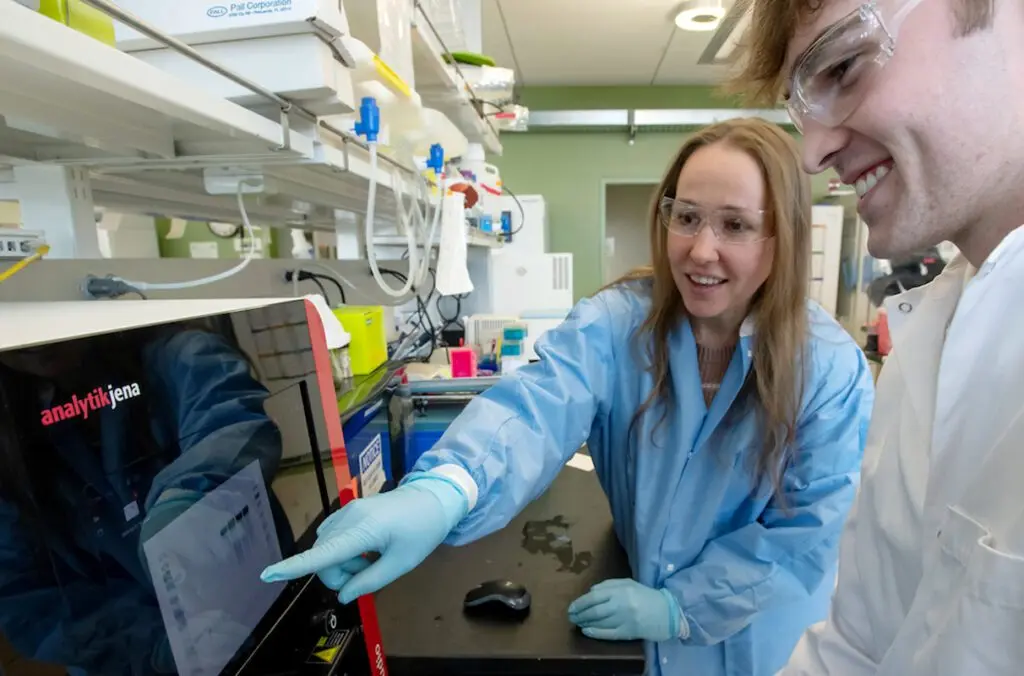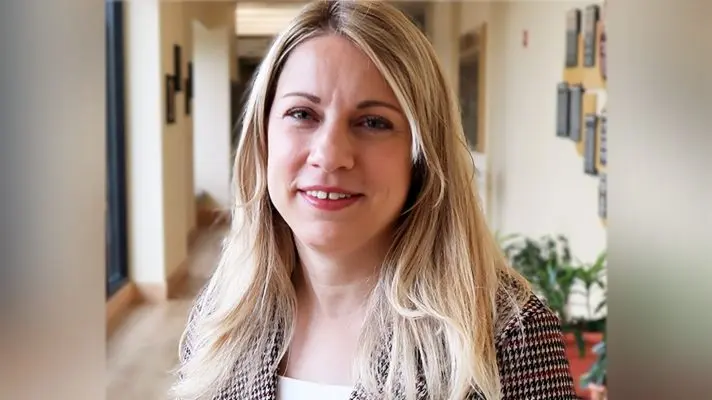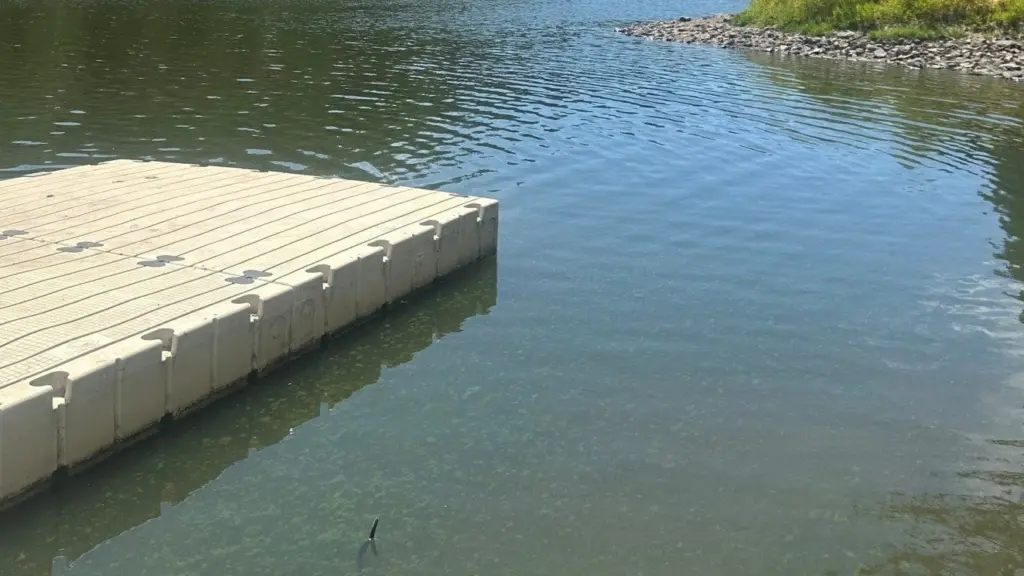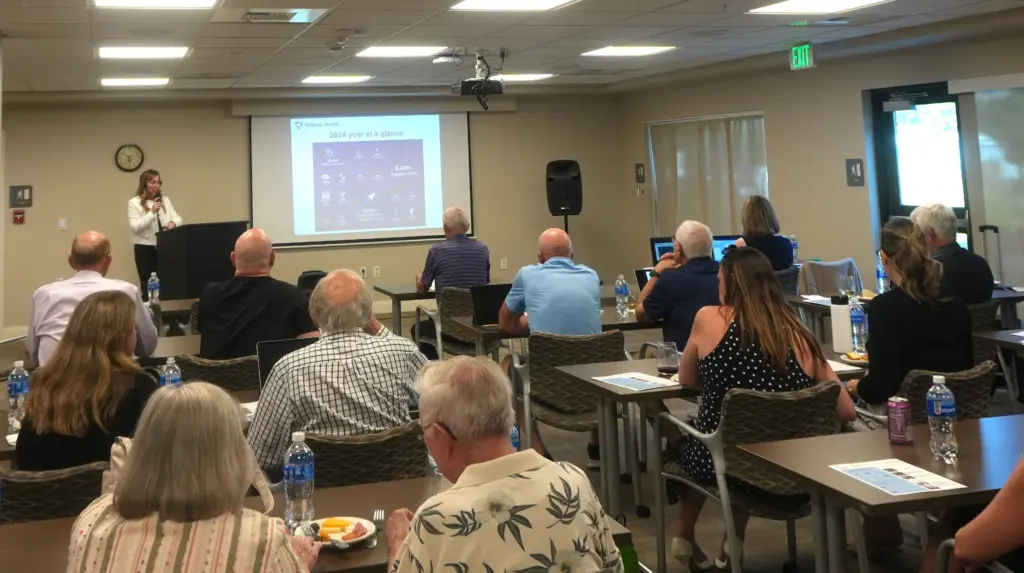Pullman, Washington Washington State University’s College of Veterinary Medicine has established a new grant program to support creative initiatives aimed at advancing science and enhancing global health, as federal and state funding for research becomes increasingly scarce.
Through the recently launched Pump Priming Research Program, which aims to foster ambitious, multidisciplinary projects with significant external funding possibilities, the college recently granted its first three grants. The first recipients are Jason Park from the Department of Veterinary Microbiology and Pathology, who is researching vector-pathogen interactions; Heather Koehler, a faculty member in the School of Molecular Biosciences, who is researching Mpox; and Viveka Vadyvaloo, director of the Paul G. Allen School for Global Health, whose research will concentrate on bubonic plague. Park was given $150,000, and Vadyvaloo and Koehler each earned $125,000.
According to Jon Oatley, the associate dean for research at the institution who oversaw the initiative, “in the past, our intramural grants topped out at around $20,000, which limited the scale and scope of what could be done.” This initiative aims to enable more ambitious ideas, interdisciplinary teams, and the freedom to take measured risks that have the potential to yield significant rewards.
Projects with the potential to change knowledge and draw in the kind of funding that has a long-term effect on the college, university, and the world are the ones we want to support.
Associate dean for research at WSU’s College of Veterinary Medicine, Jon Oatley
Return-on-investment dollars from faculty research activities operationalize the college’s Strategic Research Fund, which provides funding for the program. According to Oatley, he hopes the awards will be available at least every other year.
In order to increase the significance of our research findings and our capacity to compete for greater amounts of outside financing, we are striving to strengthen the college’s research enterprise, Oatley stated. Projects with the potential to change knowledge and draw in the kind of funding that has a long-term effect on the college, university, and the world are the ones we want to support.
Twelve letters of interest were received following the publication of a request for research projects, and nine complete papers were eventually sent for evaluation. To assess the ideas and provide comments and input, an ad hoc committee of internal faculty reviewers was formed. A chosen set of applicants was asked to take part in an oral defense, which was based on a graduate thesis defense, where they were asked questions and presented their proposals. The three projects that were chosen for funding were chosen because of their potential for return on investment, creativity, cross-disciplinary reach, and scientific value.
According to Oatley, in addition to their excellent scientific foundation, they also showed a great deal of promise for outside funding and societal advancement. As the name suggests, we are preparing for a larger initiative that will produce excellent data and present compelling arguments for additional funding.
Vadyvaloo expressed her gratitude to be one of the first recipients and her excitement for the program’s growth and support of faculty research. She plans to utilize her grant funding to investigate how Yersinia pestis, the bacterium that causes bubonic plague, is spread by infected fleas.
According to her, this is a progressive program that offers stimulus funds to support academics in generating initial data, investigating novel and creative concepts, and laying a solid basis for subsequent grant applications. Support of this nature will broaden the college’s research portfolio, promote teamwork, and generate worthwhile opportunities for research staff and trainees.










